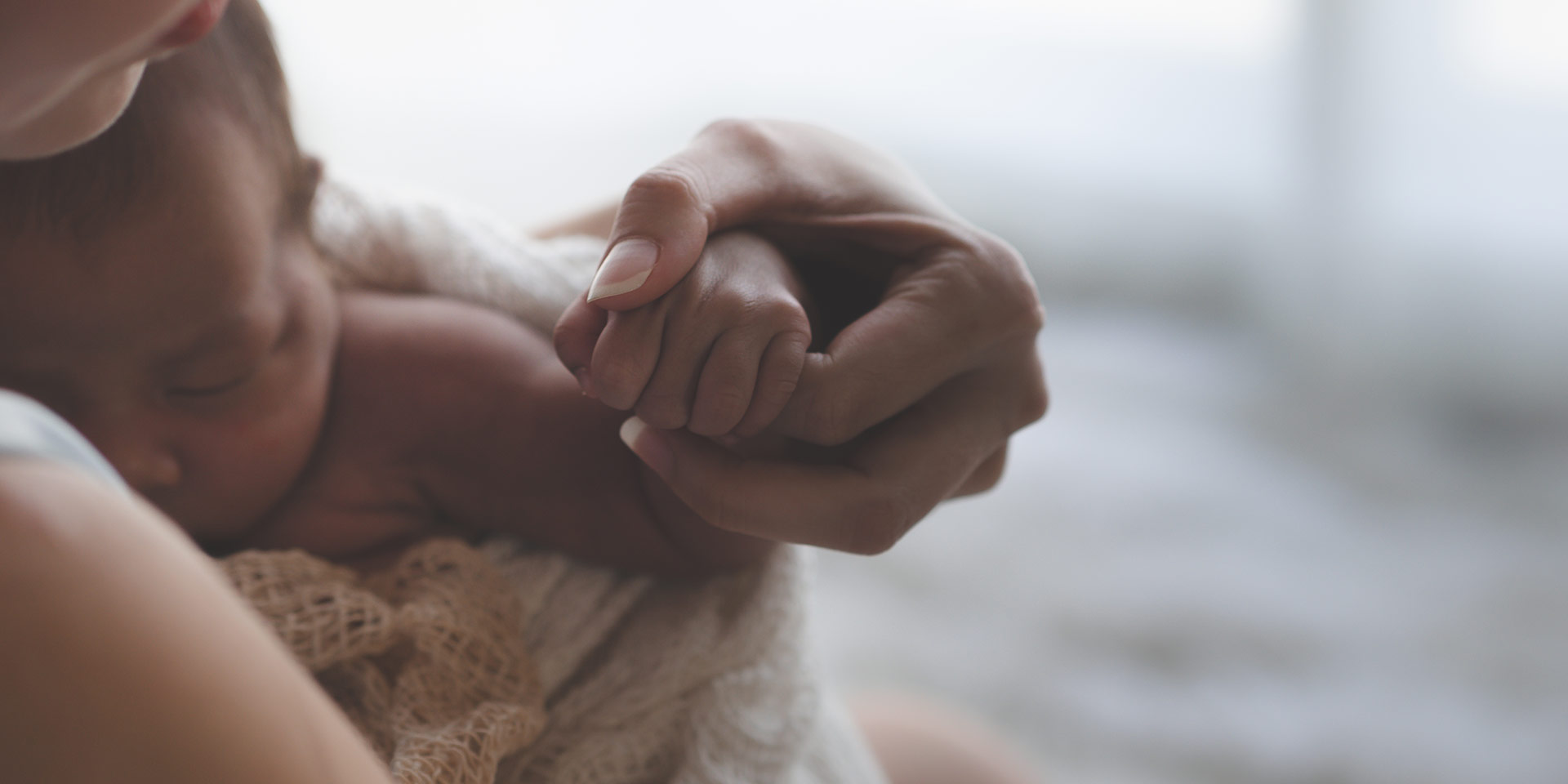We carry sad stories with us, and the meaning of these stories often eludes us. What if we discovered that these stories provide unique opportunities to change lives? Cori Salchert discovered, through family tragedy, the resolve and desire to take care of children with terminal illnesses.
The death of her sister, Amie, has haunted Cori over the years. Amie contracted spinal meningitis when she was just a few months old, and was mentally and physically disabled after suffering a very high fever. Her parents hospitalized her in a special child care centre when they could no longer provide her with the necessary care.
When she was 11 years old, wandering through a door that had accidentally been left open, Amie ventured into the courtyard of the medical centre. Nearby was a golf course with a lake, which Amie entered without realizing the danger. She drowned in that lake, without anyone noticing. Cori often imagined Amie suffocating, alone and scared, unable to understand what was happening to her. She wondered where God had been when her sister was most in need, and not having an answer tormented her over the years.
Cori often imagined Amie suffocating, alone and scared, unable to understand what was happening to her. She wondered where God had been when her sister was most in need, and not having an answer tormented her over the years.
Healing did not begin until adulthood, when Cori heard a Christian hymn. The lyrics spoke about broken things that, although they cannot be repaired, when brought before God, will be redeemed. She stopped asking “Why?” and brought her pain and disappointment to God, in her prayers, waiting for them to be redeemed. The response to her request exceeded her expectations.
Cori became a nurse and worked in several departments over her career. It was easiest for her to work at the maternity hospital. She herself had eight children, so she knew the challenges very well. In time, she saw how much parents suffered when their baby was stillborn, or died shortly after birth. Unlike other nurses who ran away from such tragedies as soon as possible, Cori realized that she could make the parents’ experience less traumatic. She could not repair what was broken, but she could treat the parents who were mourning their children with care and compassion.
She set up an organization in the city of Sheboygan, Wisconsin, to help them overcome the pain of loss. She sometimes cared for babies whose parents were too overwhelmed to be with them as they were dying. She held them in her arms for the last few moments, so they would not die alone.
In the summer of 2012, Cori became ill with an autoimmune disease and was on medical leave when she was called by the hospital. A very seriously ill girl had been abandoned in the hospital and they knew that she would not live more than a few days. She suffered from anencephaly, born without much of her brain, was blind, and could only hear and respond to painful stimuli. The hospital proposed that Cori should adopt her so that the baby would not die alone. Without hesitation, Cori took little Emmalynn home. Her other eight children helped her care for her to the end. The girl lived 50 days, much longer than anyone would expect from a baby with such a disease.
Emmalynn’s death brought pain, but soon the family decided to help other babies. That’s how they met Charlie, whose family hadn’t abandoned him, but couldn’t take care of him, as his condition was too much for his family members. At just four months old, Charlie joined Cori’s family. His situation was a little different, as he was not in a terminal condition, but his illness severely limited his life. Charlie needed constant medical monitoring in order to survive. The prospect of a fatal mistake for the little one terrified Cori, and she was ready to give up. She then told herself that it was normal for her to be afraid, as long as she did not let fear paralyze her.
She then told herself that it was normal for her to be afraid, as long as she did not let fear paralyze her.
The Salchert family did their best to get Charlie to attend family events and go on all their trips together. And in Charlie’s case, the situation turned out much better than everyone had expected. Although life expectancy for children with his disease does not exceed two years, Charlie had just turned five when Cori told her story to a TV programme. She knew that although prolonging his life is a gift, she couldn’t have him for as long as she wanted. “He is dying; I can’t change that. But we can have an impact on the way he lives, and the impact for Charlie is that he will be loved until the moment he dies.”
At the same time that they were caring for Charlie, the family helped four other terminally ill babies. In 2015, Cori met Samuel, a 13-year-old teenager who was suffering from a disease that caused his brain to degenerate. Although he was not a baby, Cori could not limit her help to children of a certain age. They really wanted to be able to adopt him. They couldn’t let him die alone in the hospital. Unfortunately, they could not adopt him then because they had other placement obligations, and there was no room in the house.
Two years later, Cori and her husband, Mark, managed to make more room in the house to adopt Samuel. During the adoption proceedings—which was made simpler by a judge who agreed to come to the hospital—Samuel smiled broadly, and everyone present applauded with joy. Unfortunately, Samuel died just a few weeks after his adoption, but he spent his last moments surrounded by a family of his own.
“One child at a time,” says Cori. “I do not intend to change the world, but I will humbly walk with my God for as many days as He will give me, and I am confident that He knows very well what He can do with the constant faith of a mother, father, and family willing to fulfil what a child needs.”
Cori confesses that what she and her family do is terribly difficult and there are situations in which they feel overwhelmed. There were many times when she neglected her own children because she had to take care of Charlie. Communication, walking together, and believing that they are doing God’s will helps all of them cope with the difficulties. To those who do not understand how she finds joy in what she does for dying children—who often do not even respond in any way to the love they’re shown—Cori answers: “What a gift it is to be part of the life of these babies, to have the ability to diminish the suffering, to cherish and love them!”
“One child at a time,” says Cori. “I do not intend to change the world, but I will humbly walk with my God for as many days as He will give me, and I am confident that He knows very well what He can do with the constant faith of a mother, father, and family willing to fulfil what a child needs.” She’s afraid of Charlie’s death and can’t get used to the idea, but she knows better now than she did when she wondered why Amie died, that suffering changes one’s heart. “Our hearts are like stained glass windows. They are made of broken glass which was forged together, and they are stronger and more beautiful because they were broken.”



















